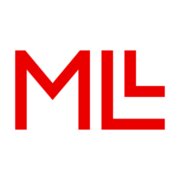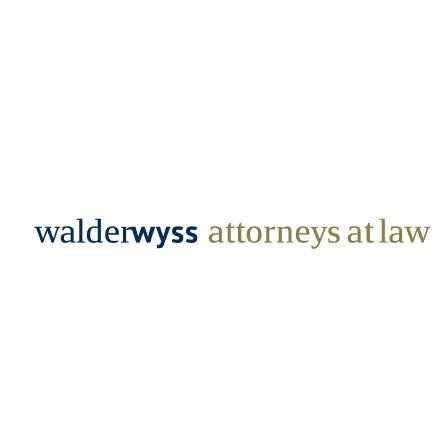Best Energy Regulatory Law Lawyers in Switzerland
Share your needs with us, get contacted by law firms.
Free. Takes 2 min.
Or refine your search by selecting a city:
List of the best lawyers in Switzerland
About Energy Regulatory Law in Switzerland
Energy Regulatory Law in Switzerland refers to the collection of legal frameworks, regulations, and authorities governing the generation, transmission, distribution, and sale of energy. This includes electricity, gas, renewable energy sources, nuclear power, as well as measures for energy efficiency and environmental protection. Switzerland is recognized for its dynamic energy market, sustainability commitments, and strong legal structures that promote fair competition, consumer protection, and the responsible management of natural resources. The evolving landscape, particularly concerning renewable energy and the liberalization of the electricity market, makes understanding regulatory requirements crucial for both consumers and industry stakeholders.
Why You May Need a Lawyer
Legal assistance is often required in the area of Energy Regulatory Law for various reasons. Common situations include negotiating and drafting energy supply contracts, seeking licenses or permits for energy production, navigating complex compliance requirements, resolving disputes between energy suppliers and consumers, addressing grid access issues, participating in energy tenders or auctions, interpreting new or revised regulations, and addressing environmental impacts. Businesses entering the Swiss energy market, property developers, startups, and private individuals may all encounter scenarios where professional legal expertise helps safeguard interests and ensures compliance with Switzerland's strict energy regulations.
Local Laws Overview
Switzerland’s energy sector is shaped by several key laws and regulators. Dominant among them is the Energy Act (Energiegesetz - ENA), which sets guiding principles for energy production, efficiency, and the expansion of renewable resources. The Swiss Federal Electricity Supply Act (StromVG) governs the structure of the electricity market, grid management, and consumer access. The Federal Nuclear Energy Act oversees nuclear power usage and decommissioning. Regulatory oversight is mainly exercised by the Swiss Federal Electricity Commission (ElCom), which monitors tariffs, market access, and security of supply. The local implementation of energy regulation is further influenced by cantonal authorities. The legal framework continues to evolve alongside Switzerland’s “Energy Strategy 2050,” aiming for a low-carbon and sustainable future.
Frequently Asked Questions
What is the role of the Swiss Federal Electricity Commission (ElCom)?
ElCom supervises the electricity market, monitors grid reliability, sets price regulation, adjudicates disputes, and ensures compliance with Swiss and European energy laws.
Can private individuals or companies produce renewable energy?
Yes, individuals and businesses may generate renewable energy such as solar, wind, or hydro power. However, specific permits, grid connection agreements, and compliance with national and cantonal regulations are often required.
How is the Swiss electricity market structured?
The market is partially liberalized. Large consumers can choose their provider, while small customers are typically bound to their local supplier. Ongoing reforms may further open the market.
Are there subsidies or incentives for renewable energy?
Switzerland provides financial incentives including feed-in tariffs and investment contributions for certain renewable energy installations through federal programs.
What are grid access rights?
Producers and consumers generally have the right to access the electricity grid, subject to regulatory approval, technical standards, and payment of fees to the grid operator.
Is nuclear energy legal in Switzerland?
Nuclear energy is currently being phased out. No new nuclear power plants may be built, but existing facilities may operate until the end of their service lives under strict regulatory conditions.
How does Switzerland regulate energy prices?
ElCom supervises grid tariffs and certain electricity price components to prevent abuse and ensure fairness, especially where there is no effective competition.
What obligations do energy suppliers have regarding consumers?
Energy suppliers must ensure non-discriminatory, reliable, and transparent access to energy, provide information, comply with contractual obligations, and protect consumer data.
How are environmental concerns addressed in energy projects?
Environmental laws require rigorous assessments for new energy infrastructure, including impact studies, permits, and measures for nature conservation and emissions reduction.
What legal remedies exist for disputes in energy regulation?
Parties may bring disputes regarding tariffs, grid access, or regulatory decisions before ElCom or appeal to the Federal Administrative Court for review.
Additional Resources
- Swiss Federal Electricity Commission (ElCom) - the main regulatory authority for electricity - Swiss Federal Office of Energy (SFOE) - responsible for energy policy and implementation of energy laws - Association of Swiss Electricity Companies (VSE/AES) - provides industry insights and publications - Swiss Renewable Energy Federation (AEE SUISSE) - advocacy and information for renewables - Cantonal energy offices - for region-specific regulations and incentives - Swiss Energy Ombudsman - assisting consumers with energy-related complaints
Next Steps
If you require legal advice regarding Energy Regulatory Law in Switzerland, begin by clearly defining your concerns or project details. Gather all relevant documents such as contracts, permits, correspondence with authorities, or technical reports. Next, consult with a qualified Swiss lawyer or law firm with experience in energy law. They can assess your situation, clarify your legal standing, and assist with regulatory procedures or disputes. When choosing legal representation, consider expertise in energy and administrative law, familiarity with local and cantonal regulations, and a proven track record in similar cases. For complex matters, early legal counsel can help you avoid costly errors and achieve favorable outcomes.
Lawzana helps you find the best lawyers and law firms in Switzerland through a curated and pre-screened list of qualified legal professionals. Our platform offers rankings and detailed profiles of attorneys and law firms, allowing you to compare based on practice areas, including Energy Regulatory Law, experience, and client feedback.
Each profile includes a description of the firm's areas of practice, client reviews, team members and partners, year of establishment, spoken languages, office locations, contact information, social media presence, and any published articles or resources. Most firms on our platform speak English and are experienced in both local and international legal matters.
Get a quote from top-rated law firms in Switzerland — quickly, securely, and without unnecessary hassle.
Disclaimer:
The information provided on this page is for general informational purposes only and does not constitute legal advice. While we strive to ensure the accuracy and relevance of the content, legal information may change over time, and interpretations of the law can vary. You should always consult with a qualified legal professional for advice specific to your situation.
We disclaim all liability for actions taken or not taken based on the content of this page. If you believe any information is incorrect or outdated, please contact us, and we will review and update it where appropriate.
Browse energy regulatory law law firms by city in Switzerland
Refine your search by selecting a city.

















